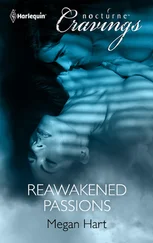Duchess - Portia; Or, By Passions Rocked
Здесь есть возможность читать онлайн «Duchess - Portia; Or, By Passions Rocked» — ознакомительный отрывок электронной книги совершенно бесплатно, а после прочтения отрывка купить полную версию. В некоторых случаях можно слушать аудио, скачать через торрент в формате fb2 и присутствует краткое содержание. Жанр: foreign_antique, foreign_prose, foreign_sf, на английском языке. Описание произведения, (предисловие) а так же отзывы посетителей доступны на портале библиотеки ЛибКат.
- Название:Portia; Or, By Passions Rocked
- Автор:
- Жанр:
- Год:неизвестен
- ISBN:нет данных
- Рейтинг книги:3 / 5. Голосов: 1
-
Избранное:Добавить в избранное
- Отзывы:
-
Ваша оценка:
- 60
- 1
- 2
- 3
- 4
- 5
Portia; Or, By Passions Rocked: краткое содержание, описание и аннотация
Предлагаем к чтению аннотацию, описание, краткое содержание или предисловие (зависит от того, что написал сам автор книги «Portia; Or, By Passions Rocked»). Если вы не нашли необходимую информацию о книге — напишите в комментариях, мы постараемся отыскать её.
Portia; Or, By Passions Rocked — читать онлайн ознакомительный отрывок
Ниже представлен текст книги, разбитый по страницам. Система сохранения места последней прочитанной страницы, позволяет с удобством читать онлайн бесплатно книгу «Portia; Or, By Passions Rocked», без необходимости каждый раз заново искать на чём Вы остановились. Поставьте закладку, и сможете в любой момент перейти на страницу, на которой закончили чтение.
Интервал:
Закладка:
"What is it that has risen between us?" he asks, suddenly; there is something intense in his tone. "Have you?" – he pauses, and then goes on with an effort – "have you in your heart so utterly condemned me?"
They have come to a stand-still; and Fabian, as he asks this question, is standing with his back against a huge oak tree, his eyes fixed upon his companion. His face is as white as death.
She makes him no answer. A very fine shade of color, so faint as to be almost imperceptible, dyes her cheek for a moment and then vanishes as suddenly as it came, leaving her quite as pallid as he is himself.
"It is the most natural thing in the world to condemn," he goes on, somewhat excitedly. "It is only human. One feels how easy it is. If one hears a damning story about an acquaintance, a story almost unsupported, how readily one inclines to the cruel side. It is not worse in one than in another. We all have a touch of savagery about us – a thirst for blood. For the most part, if placed in a certain set number of circumstances, we all think and act alike. That we should be cast in one mould with the very commonest of our brethren is a humiliating thought, but strictly within the lines of truth. You do condemn me?"
He wishes to force her into saying so. She shrinks from him, and raises one hand to her throat, as though nervous and unhappy.
"I don't know," she says at last, in a low, hesitating tone. "I know nothing. Sometimes I don't even know myself."
"That is always a knowledge difficult of attainment," he says, slowly. "But about me, in your heart, you are sure . You believe you do know. You think me guilty." As he says the word he clenches one hand so firmly that the nails crush into the flesh.
"I would rather not talk about it," says Portia, faintly.
By a terrible effort he recovers himself; a quick breath, that is almost a sigh, escapes him.
"That, of course, shall be as you wish," he says, quietly; and, rousing himself, they walk on together beneath the branching elms, in silence, painful as it is prolonged.
Coming to a tiny stream (where he is compelled to offer and she to accept, his hand to help her over), she glances at him, but her glance is not returned, and then she sees that he has forgotten her very existence, and is, in thought, miles away from her. He has entered into some ideal realm of his own – captured during his long years of isolation from the world.
As she is silently watching him and wondering, a dark figure, moving from between the shrubs that hide off one angle of the house, comes into their path, and, seeing them, makes a skulking movement to the right as though it would gladly escape observation.
"Good evening, Slyme," says Fabian, in half kindly, half contemptuous tone. The old man murmurs something in return. His eyes refuse to meet Fabian's, his hands join each other, and rub palm to palm in an uneasy, shuffling fashion. His voice is husky and slightly uncertain. His dull old eyes roam from Fabian to Portia in an odd, questioning way, as if debating some strange matter. Yet, though looking at them, it is at their arms or chests he looks, rather than at their faces.
Portia (who had stopped when Fabian had) now turns a little to one side and plucks a flower lazily from a neighboring shrub, and sighs a little as if weary, and as if she would gladly be at home.
At this, Fabian, who is quick to notice anything concerning her, rouses himself from his prolonged stare at Gregory, and, noting the instability of the old man's gait, says, suddenly, with his dark gaze full upon him:
"Again!"
His tone this time is all contempt; no kindliness mingles with it. The old man seems to wither beneath it, and puts out his hands with a gesture suggestive of deprecation. Fabian, taking no notice of it, walks away from him, Portia gladly following.
Then the secretary's face changes. Standing in the centre of the pathway, he looks after their retreating figures with a half-drunken scrutiny, full of malice.
"Ay," he says, bitterly, beneath his breath, "as a dog I am in his sight! So he has destroyed his only hope this many a time!"
His head sinks into its old position on his chest, and with a muttered curse he continues his way.
Just as Portia ascends the stone steps that lead to the house, Fabian, by a gentle touch, detains her.
"Remember always this," he said slowly and with an attempt at calmness that is infinitely sad, "that I do not blame you."
Tears spring to her eyes. She is at least generous, and now a great longing to be able to believe in him, to be able to assure him of her unbounded faith in his honor possesses her. But, alas! faith is neither to be invoked nor purchased, and to lie to him, and tell him a soothing falsehood against her conscience would be worse than useless. The tears having gathered, two of them roll slowly down her cheeks. She turns hastily aside. Catching her hand he holds it for a short moment in his own.
"They at least are mine," he says, meaning the tears, his voice deeply agitated, and then she draws her hand from his, and an instant later, is lost to sight.
CHAPTER IX
"Young hearts, bright eyes, and rosy lips are there,
And fairy steps, and light and laughing voices,
Ringing like welcome music through the air —
A sound at which the untroubled heart rejoices."
Portia, dressed in merveilleux of a cream shade, with a soft, yellow rose in her hair, is looking her loveliest. She is a little languid after her walk, and a little distraite , but desirable beyond words. She is coquetting with her dinner, rather than eating it, and is somewhat uncomfortably conscious that Fabian's eyes are perpetually wandering in her direction.
Dicky Browne is talking gaily, and is devoting himself with an ardor worthy of a better cause to Julia Beaufort, who is chattering inanely about many things, and who is in her element, and a blood-colored gown.
They have all the conversation to themselves, these two, as the others are depressed, or rather impressed, by Sir Christopher's silence, who has one of his brooding fits upon him. Either the redoubtable Bowles disagreed with him, or he disagreed with Bowles, because clouds have crowned his brow since his return home.
Mrs. Beaufort by this time has got to Sardou's last comedy, and Dicky, who never heard of it or its author, comes to a conversational stand-still. This means uninterrupted quiet all round, as nobody else is saying anything. The footsteps of the solemn butler, and his equally solemn assistant, is all the sound one hears, and presently they all wake to the fact that something must be said, and soon .
"What wretched artichokes!" says Dulce, coming nobly to the front, with a laudable desire to fill up the yawning gap.
"Yes – melancholy," says Roger, backing her up, as in duty bound; "out of all heart, apparently."
At this weak attempt at a joke Dicky grins approvingly.
"I know few people so altogether sufficing as our Roger," he says patronizingly, addressing nobody in particular; and as nobody in particular appears to think it necessary to answer him, conversation once more languishes.
Sir Mark – who can always find resources in his dinner, whatever else may fail him – is placidly happy, so is Mrs. Beaufort, though, perhaps, she is a little sorry that her sleeves have not been made as tight as Portia's, and with the second puffing, which is certainly beyond all praise!
"What's this?" asks Sir Christopher, addressing the butler in a resigned tone, and looking at a round, soft mass that has just been laid before him.
"Suet dumpling, Sir Christopher," replies the butler, apologetically.
"Again!" says Sir Christopher, in an indescribable manner.
Читать дальшеИнтервал:
Закладка:
Похожие книги на «Portia; Or, By Passions Rocked»
Представляем Вашему вниманию похожие книги на «Portia; Or, By Passions Rocked» списком для выбора. Мы отобрали схожую по названию и смыслу литературу в надежде предоставить читателям больше вариантов отыскать новые, интересные, ещё непрочитанные произведения.
Обсуждение, отзывы о книге «Portia; Or, By Passions Rocked» и просто собственные мнения читателей. Оставьте ваши комментарии, напишите, что Вы думаете о произведении, его смысле или главных героях. Укажите что конкретно понравилось, а что нет, и почему Вы так считаете.












